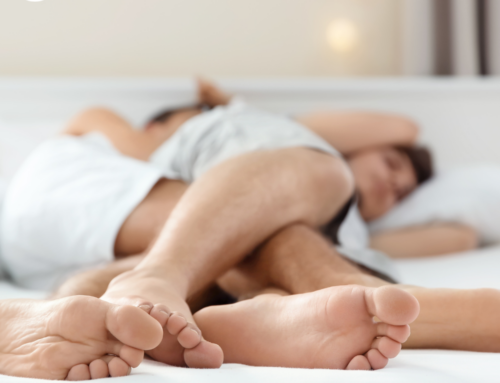Finding Love—or Something Like It
Once upon a swipe, finding love—or something like it—on a dating app was, if not easy, at least attainable. But now, more than 10 years after Tinder normalized online dating, the virtual spark seems to be flickering out. With ever-increasing subscription fees, unfathomable algorithms, and declining memberships, it’s all too easy for online dating in 2024 to feel more like an exercise in futility than an actual pathway to partnership.
Of course, trying to find a partner in real life—whether originally at a bar, asking friends to set you up, or begrudgingly joining a TikTok-famous singles run club—isn’t without its obstacles. But there’s nothing worse than being single and having your friend who met their S.O. On a dating app back when they were first invented ask, “Well, have you tried the apps?”
Yes, but… have you seen the apps today?
Even though dating apps are still one of the most common places for people to meet their romantic partner, dissatisfaction with the apps has “amplified,” especially in a “post-pandemic” world, says Jess Carbino, PhD, a relationship sociologist who specializes in online dating culture and has worked with Tinder and Bumble. In fact, 78 percent of dating app users reportedly feel “emotionally, mentally, or physically exhausted” by them, according to one 2024 Forbes Health study.
In the past year, experts have seen an uptick in dating app “disenchantment” and “burnout,” according to Kathryn Coduto, PhD, an assistant professor of media science at Boston University. For one thing, there are so many apps that singles are experiencing technology fatigue: Many users report using two to four different dating apps at a time, which can lead to burnout, says Coduto. Beyond that, though, there are two huge factors that can lead to singles wanting to delete the apps: time and money.
“A big [contribution to burnout] is feeling like people aren’t connecting in the ways they want to,” Coduto says. “People say that despite all that time swiping [and] all that time spent on building their profiles, they aren’t finding the kind of match they want.” In fact, 51 percent of American women reported having negative experiences on dating apps, per a 2022 Pew Research Center survey. “We see a lot of people who experience ghosting on the apps where they’ve invested energy into trying to get to know someone, and then that person just disappears,” says Anderson. “People have gotten burned, or they’ve seen their friends get burned, and they’re going, ‘I don’t want to invest my energy into something that’s not getting me results.’”
Singles aren’t just swiped out—the rising cost of dating apps is also fueling burnout.
Of course, paying for dating apps is not a new phenomenon. When Match.Com hit the scene in the ’90s, membership cost $9.95 per month. But as dating apps emerged in earnest in the 2010s, most were free to download and paywalls were few and far between. “They were just trying to get as many people [to join] as possible. But, now that we’ve had Hinge and Tinder and Bumble and these apps that have been around for a long time, they’re more focused on revenue,” says Morgan Anderson, PsyD, a clinical psychologist, relationship coach, and author of Love Magnet. It’s also worth noting that Match Group now owns many of the newer apps, like Tinder, Hinge, and OkCupid. So, it’s no surprise that while these dating apps remain free to download, the business has implemented paywall strategies in the form of “in-app purchases” across the board.
While many of the most popular dating apps still have a free tier, the apps all boast that you’ll get the best experience if you pay for their premium subscription. For example, spend up to $25 per week on Hinge—with cost-saving options if you subscribe for a longer period of time of up to six months—and you’ll receive “enhanced recommendations,” “priority likes,” and have the chance to “set more dating preferences” than those with a free account.
Related Stories
“In the last six months, the increase in paywalls and paying for specific features is really spurring the latest round of burnout,” says Coduto. “There is a subscription for everything, so it feels like, ‘I’m already paying for Netflix, Spotify, an Uber subscription, and I also have to have a subscription to a dating app.’ That starts to feel overwhelming and draining, especially as we continue to teeter on a possible recession.” While some users may be inclined to fork over the subscription fee for a peek behind the paywall, many others feel apprehension. “People already have all kinds of emotional resistance to dating, and then you add a paywall, and you have more and more people that go, ‘This just isn’t worth it,’” says Anderson.
Plus, the jury’s still out on whether or not paying a fee actually benefits the users. It’s unclear whether the dating app industry is using “ethical practices” when it comes to paywalls, says Marisa T. Cohen, PhD, LMFT, a therapist, relationship scientist, and author of From First Kiss to Forever: A Scientific Approach to Love. “There have been anecdotal stories [of] before you pay, you will get all these notifications of people matching with you. Then once you’re behind the paywall, all of that kind of slows down,” she says. “I’ve heard from people that, for whatever reason, they get more people in their pool before they pay.”
And those monthly fees sometimes don’t even cover the “à la carte” features that make each using a dating app feel like playing a game. Dating app “gamification” can range from the apps offering a limited number of “super likes” or “roses” to only allowing you to message your match for 24 hours before they disappear. Every dating app has its own way of getting you to come back to the app—and while you’re there, spend money.
To combat the “gamification” of a dating app, users are trying to game the apps right back.
Eventually, the “love at first swipe” ethos lost its novelty. The unique mechanism that made Tinder famous was no longer enough to keep users glued to their screen. So, in 2015, the app launched “Super Likes,” which let users alert a potential match of their interest before they swiped. That new feature changed the way Tinder users interacted with the app and each other, and eventually, the rest of the industry implemented similar attention-grabbing gimmicks. “The gamification of dating apps became more prevalent where everyone has their own version [of] likes and super likes and poking and giving gifts and playing games,” says Cohen. “[Dating app] became more like a game type of app.”
Now, in the era of dating app fatigue, there’s a mentality of if the apps are going to play us, let’s play them—specifically among Gen Z and millennials on social media. TikTok users are constantly posting their “strategies” for gaming the dating app algorithm. It seems like as soon as I see one “Hinge hack,” about five more come across my For You page, all with a single goal: to find a lasting match without spending moula.
Users have recommended “refreshing” your Hinge feed by threatening to delete your account, which prompts Hinge’s “Fresh Start” setting, allowing for a reset on your dating pool, without deleting your profile or matches. I’ve seen TikTokers telling Hinge users to “X” out all of their “Standouts,” so Hinge will think you don’t like them and they end up in your normal dating pool, rather than behind the “rose jail” paywall. (FYI: These methods may violate the app’s terms of service, so proceed at your own risk.)
Related Dating App Stories
But the so-called “hacks” are “largely speculative,” and it’s hard to game the system beyond letting the app learn your preferences, says Carbino. “If you prefer to only see men with blonde hair, and you swipe right on only men with blonde hair, the app is going to serve you more men with blonde hair relative to men with brown hair or red hair,” she explains. “But it’s very difficult for people to manipulate the algorithms in a way that’s meaningful.”
Death, taxes, and lack of control over dating app algorithms: They’re society’s great equalizers. So, while online dating can feel particularly “upsetting and stressful at times,” it’s a normal experience that people go through—no matter your age, location, gender, or sexuality, says Cohen. “We’re so quick to try to find the ‘magic formula’ to win at online dating, and there isn’t one.”
The dating apps are still working… Just not for everyone.
During the height of the COVID-19 pandemic, dating apps thrived as one of the easiest ways you could meet new people while the world was locked down. However, once these restrictions became more lenient and dating apps were no longer their only option, many singles moved away from online dating in favor of meeting people in real life, says Cohen.
The numbers don’t lie: In 2023, Americans completed more than 36 million downloads of a dating app, down 2 percent from 2022 and 16 percent from a 2020 pandemic-era high, according to mobile analytics provider data.ai. And while Tinder has been the most commonly used dating app for Americans since 2012, Bumble is poised to take over the top spot this year, thanks to a steady increase in downloads since 2021, per data.ai. A dating app is always going to have its place because, at the end of the day, it’s a way to connect people that otherwise would not be able to meet,” says Cohen.
Even so, certain demographics are growing more weary than others. Many singles—especially Gen Z—are reverting to “old-fashioned” methods of meeting people, like joining social groups and being set up by friends, according to Anderson. “There is this general consensus that we want other ways to meet people instead of the dating apps,” she says. “We’re seeing the pendulum swing back to the middle of, ‘Yes, we have dating apps, but what other options do we have?’”
Related Stories
However, other generations are still on board with the apps, according to Anderson. “The Millennial, 30-and-up crowd [has] this normalcy around using apps,” she says. Data backs this up: Users over age 30 say it’s “easier” to find a long-term partner online, according to a 2023 report from Pew Research Center. And people between the ages of 43 and 58 have the most success on dating apps, according to a Forbes Health study. Even as Tinder’s downloads have declined, Anderson points out that people in their 50s and 60s still use popular desktop sites like Match.Com and eHarmony.
Older singles’ secret to dating app success may lie in being more “specific” and “selective” when it comes to their profiles and matches, according to a 2020 study in Gerontology & Geriatric Medicine. “The older generations are more serious about finding a match, [and they] are dealing with people that are simply more mature in their approach to dating,” Anderson says.
Age isn’t the only factor—location also plays a role in your perception of dating app “success.”
“It really comes down to supply and demand,” Cohen says. For example, dating in a large city can be more “competitive” for heterosexual women, because the amount of single women on dating apps—and in real life—often outnumber the single men, she explains. With a smaller, more in-demand pool of single, heterosexual men, it’s easy to see why many single, heterosexual women feel cheated by the dating app paywalls locking up the “best” matches behind a dollar sign.
On the flip side, dating in a rural or suburban area can be tricky, too, since there might be fewer people on the apps to match with. “In general, people in large cities are much more likely to use dating apps,” Anderson says. “In rural areas, you often hear people say, ‘Well, I’ve gone through everyone.’ There’s just not as big of a pool.”
Related Story
There’s a similar phenomenon among those in the LGBTQ+ community, says Cohen. The pool is smaller, especially in more rural locations. Because of that, it’s easier to get bored of swiping or waiting for more profiles to populate, which can lead to deleting the app quickly.
Today’s singles are finding creative, albeit familiar, ways to combat dating app fatigue.
Because so many members of Gen Z are deleting their apps and going out to bars, going to dating events, or simply asking their friends to set them up, it’s easier for them to meet people in real life in 2024, says Anderson. Just like the Juicy Couture tracksuit and vests have made a fashion comeback from their ’00s grave, it seems the fascination with “old-school” dating is causing a resurgence in Gen Z.
The stigma against speed-dating and matchmaking services seems to be going away, too, says Coduto, as singles are becoming more “experimental” in their dating choices. “In 2016 and 2017, a lot of people would say that they would never tell their parents that they met a partner on a dating app. By 2019 and 2020, that stigma had really disappeared,” she explains. “It makes sense that we’re seeing stigma kind of go away for [different ways of meeting people], because anything could work.”
Related Story
Whatever your source of dating app fatigue, your frustrations are not only valid, but may signal that it’s time to put down your swiping finger and reevaluate how you’re using the apps. “Trust yourself and take that break because the way you feel about the process is going to affect how you approach meeting others through the app,” says Cohen. In other words, if you’re feeling frustrated and hopeless, you’re going to bring that attitude to your conversations and dates—which isn’t exactly conducive to building the relationship you want. “You need to feel good about it in order to get something out of it,” Cohen says.
To that end, “it’s important to have a healthy relationship with the dating apps,” says Anderson. “Treat it like a sustainable gym routine where you’re going for 15 minutes a day or 20 minutes a day, instead of going on an hour-long scroll while you’re watching Netflix and spiraling.”
Even if you are an avid dating app user, Anderson suggests incorporating other ways of meeting people into your life, too. After all, with a lot of people deleting their dating apps (or hiding in the cursed “rose jail”), you’ve definitely got options you won’t see on Hinge. Don’t be afraid to sign up for that art class or book club, or head to the farmers’ market—you never know who you’re going to meet. Even if you don’t find a romantic partner, you might just meet your new best friend who adds just as much meaning to your life. And, hey, maybe they have a single sibling or friend they could introduce you to. “The best thing that you can do [for your dating life] is have openness and be willing to meet someone in any way,” Anderson says.
Okay, okay—I promise to stop doom-swiping if you do.
Meet the Experts: Jess Carbino, PhD, is a relationship sociologist who specializes in online dating culture and has worked with Tinder and Bumble. Kathryn Coduto, PhD, is an assistant professor of media science at Boston University. Morgan Anderson, PsyD, a clinical psychologist, relationship coach, and author of Love Magnet. Marisa T. Cohen, PhD, LMFT, a therapist, relationship scientist, and author of From First Kiss to Forever: A Scientific Approach to Love.







Leave A Comment